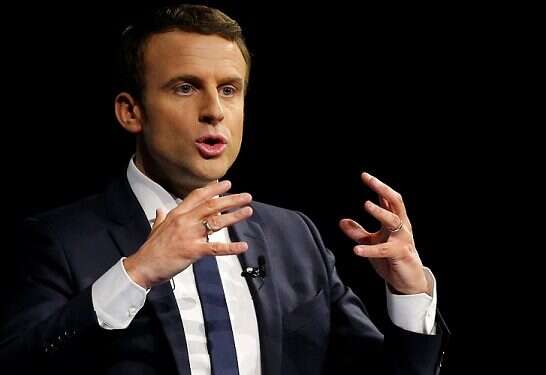French President Emmanuel Macron is urging U.S. President Donald Trump to stick with the 2015 Iranian nuclear accord, arguing that there is no "plan B."
Trump has threatened to withdraw from the Iran deal by May 12 unless U.S. and European negotiators agree to fix what he calls the agreement's serious flaws.
The deal between Iran and six world powers was reached in an effort to curb Iran's nuclear aspirations in exchange for easing the crippling economic sanctions that had been imposed on Iran. Trump has repeatedly criticized the accord as being too lenient and allowing Iran too much freedom to develop weapons.
Macron, who embarked on a state visit to Washington on Monday, told "Fox News Sunday" that while he believes the 2015 deal is imperfect, "What do you have as a better option?"
Macron and Trump are expected to discuss the Iran deal at the White House on Tuesday, a senior U.S. administration official said Friday. They will also discuss the joint military strike on Syria this month following a suspected chemical weapons attack near Damascus, the official said.
The French leader plans to discuss tariffs and to urge the U.S. to stay involved in Syria during his visit. While Trump wants to withdraw U.S. forces from Syria as soon as possible, Macron said the U.S., France and other allies will have a "very important" role to play in rebuilding Syria after they defeat the Islamic State.
He warned that Iran, which has been Syrian President Bashar Assad's most supportive ally, will overrun Syria if the countries exit too quickly.
Macron also argued against new tariffs Trump has threatened to impose starting May 1, saying "you don't make trade war with your allies."
Meanwhile, Iranian Foreign Minister Mohammad Javad Zarif said in a CBS interview on Sunday the United States would be viewed as an unreliable partner to the international community if it pulled out of the nuclear deal.
He added that there would be no reason for Iran to remain in the deal if the United States leaves and the benefits for Iran start to diminish.
"This would be a very bad precedent if the United States sends this message to the international community that the length or the duration of any agreement would depend on the duration of the presidency," Zarif said, referring to the fact that the nuclear agreement was reached with Trump's predecessor, former U.S. President Barack Obama.




